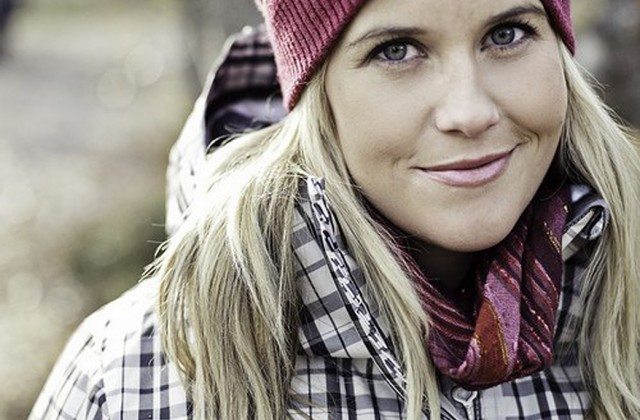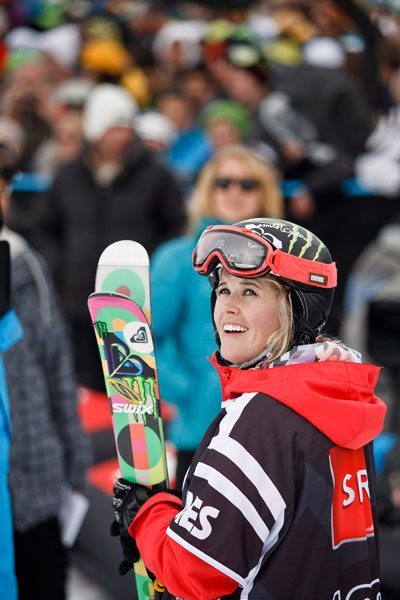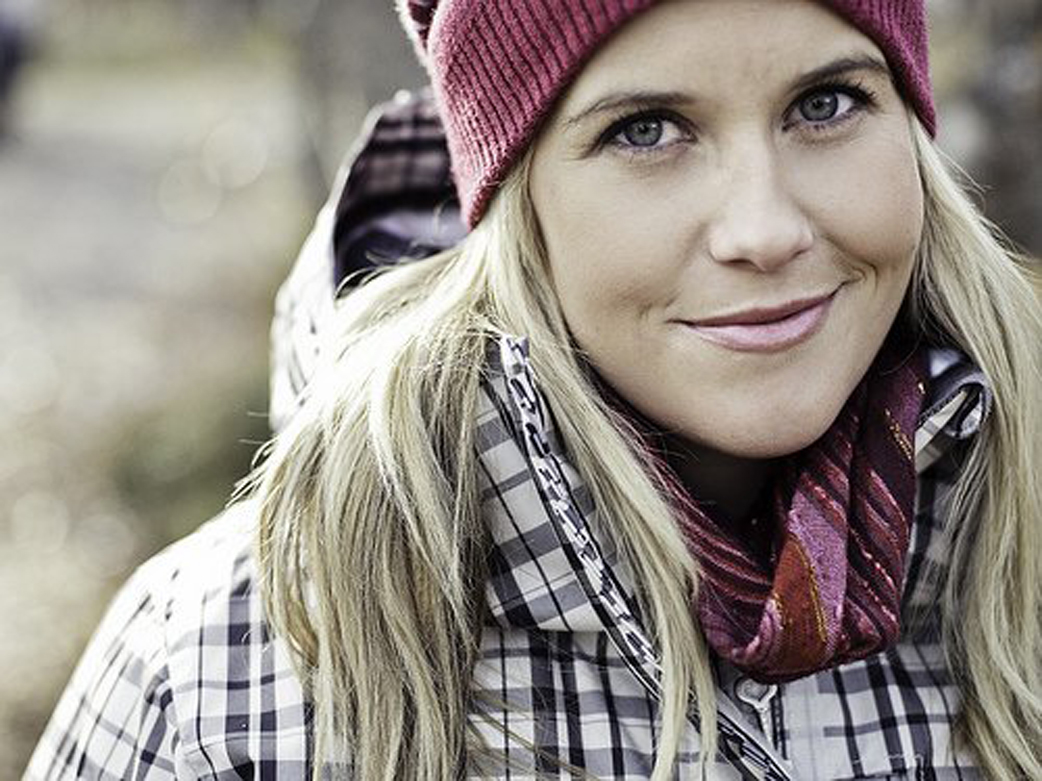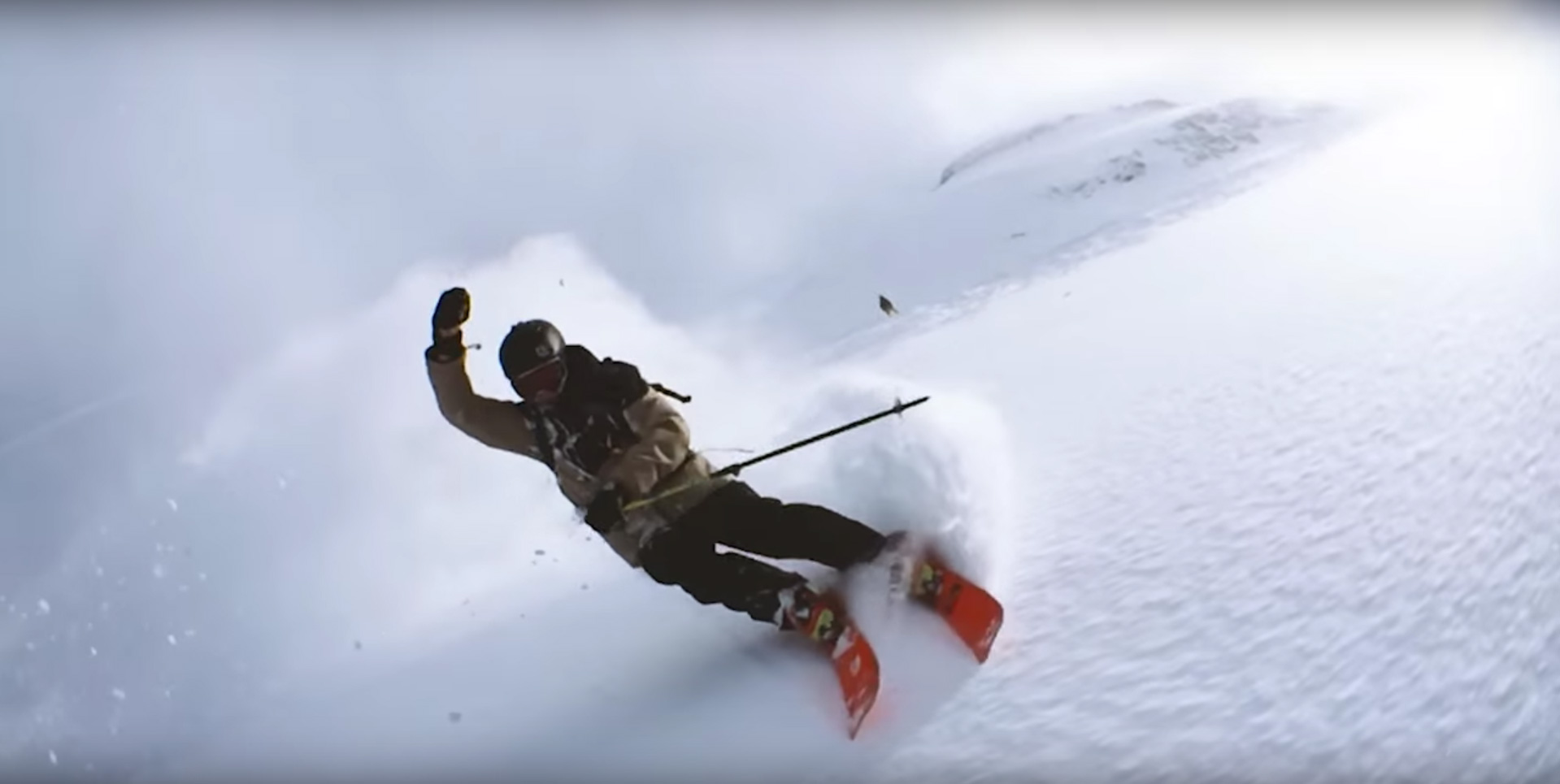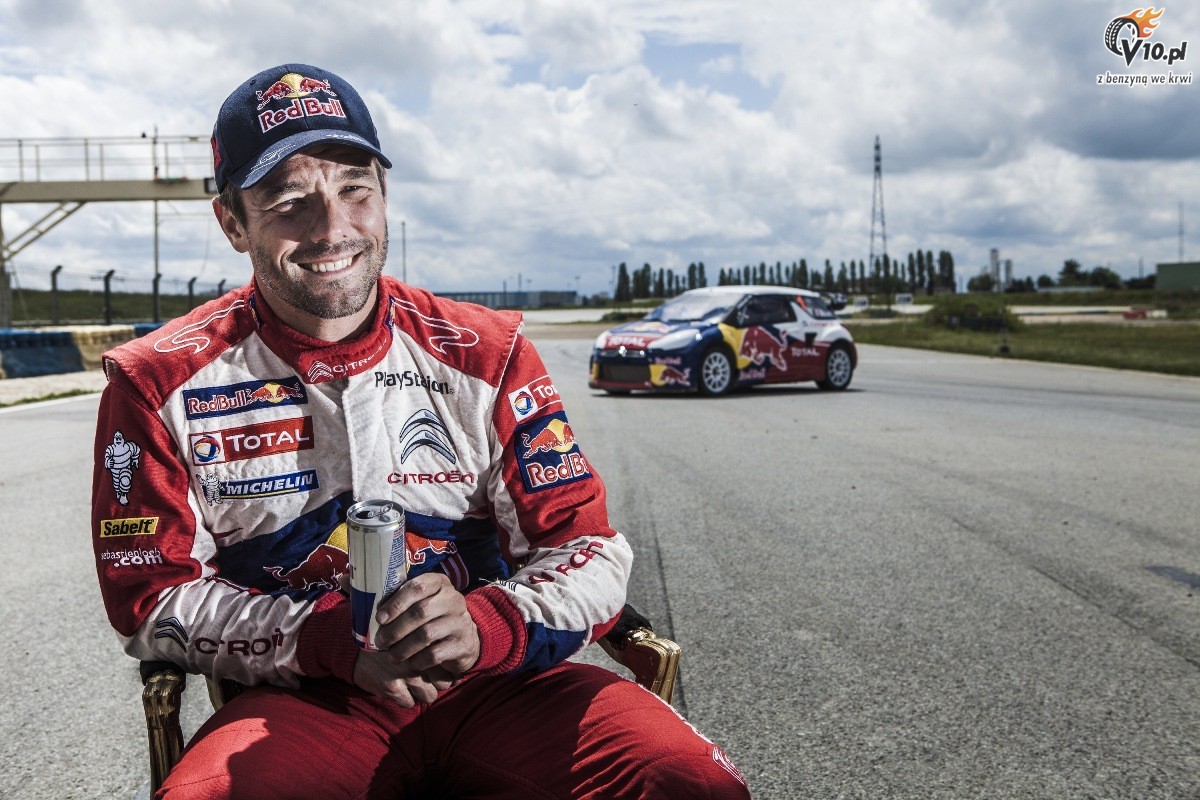Sarah Burke was a fighter.
I believe that is how she would have wanted to be remembered; she would not want to be remembered simply by a list (although it would be a very long one) of contest wins, groundbreaking half-pipe tricks and “firsts” by a woman. Those are details. Sarah’s life was about the bigger moments, about so much more than being the best woman in the sport of freeskiing.
For Sarah, success was about others as much as it was about herself. It was about fighting to make sure other women had the opportunity to compete against her, to one day break her records and compete on the same level as men. Since she buckled into her first pair of plastic boots at the age of 5, Burke was a skier by trade but a fighter by nature.
She began her ski career by competing in moguls around her hometown of Midland, Ontario. But her love of tricks, her love of flying and spinning and attempting things no one else seemed daring enough to attempt, drew her to the half-pipe and slopestyle scene.
When she first started showing up at contests as a teen, she often was turned away because the events didn’t include divisions for girls. Undeterred, she fought to compete against the boys until more women were inspired to join her, and contest organizers began creating divisions for Sarah and her friends. She pressed the X Games to include women’s skiing slopestyle, which organizers added to the event in 2009, and vocally campaigned for her sport’s inclusion in the Winter Olympics.
In her nearly 15 years in the sport, Burke spent as much time fighting for equality as she did fighting to stick the landings on some of the most innovative tricks ever attempted by a woman. She was a four-time Winter X Games gold medalist, the first skier to win an ESPY, and the first woman to land a 720, 900 and 1080 in competition. In 2009, she became the first woman to attempt a 1260 in competition, but crashed on the attempt. It is a trick she never landed in front of a crowd, but her determination to propel herself beyond current boundaries motivated younger women to push themselves. Even when she wasn’t fulfilling her own goals, Sarah was pushing others to fulfill theirs.
She was the most famous athlete in her sport and yet, somehow, also the most accessible. She was always up for anything. About five years ago, I asked her and Torah Bright to take part in an idea I had for a fun video spoof we would run on ESPN The Magazine’s website. Sarah and I were going to compete in a mock trivia contest to see who knew Torah best: Sarah (her best friend) or me (a reporter armed with Wikipedia and Google).
I wrote a script they both agreed to, but Sarah veered directly off script as soon as we started recording. The piece had me playing the overconfident reporter who learned that, despite our ability to research and find out details about an athlete’s life, we will always be trumped by the friends who know the athlete best. Since I wrote the script, I had to get a few questions right. Right? Well, Sarah wasn’t having it. She started making up her own questions. I realized I made an error in coming up with this idea; I had challenged Sarah to a competition, and, for the sake of humor or not, she was not giving up any points without a fight.
It must also be said that she was beautiful, in all the superficial ways and in the ways that matter most. She was funny and carefree and welcoming, the type of person you could meet once and remember forever. She had a smile that landed her on magazine covers and, once, on People’s Most Beautiful list. But her beauty was a thin veil for a fiery toughness that allowed her to fight through a broken back, shoulder surgery, a torn MCL, and countless other breaks and sprains.
To Sarah, injuries were footnotes. It was the fight that mattered most. So when the International Olympic Committee announced last year it would add half-pipe and slopestyle skiing to the 2014 Winter Games, no one was prouder to have the opportunity to represent her country than Burke. And not simply because she would be the odds-on favorite to win in the half-pipe, but because she knew how hard a fight it had been to get there. When athletes from around the world, many of them her friends, compete in those inaugural competitions, they will do so knowing Sarah had much to do with winning that fight.
But on Thursday, surrounded by her friends, family, and husband and fellow skier, Rory Bushfield, Sarah lost the final fight of her life at age 29. After suffering a head injury in a training accident in the Park City Mountain half-pipe Jan. 10, she underwent neurosurgery to repair a tear in one of the four major arteries to her brain. She remained in a coma following surgery, and later tests revealed that the brain damage she had suffered was irreversible.
Nine days after her accident, Sarah was taken off life support, but not before she made one final act to better the lives of those she leaves behind. In accordance with Sarah’s wishes, her organs and tissue were donated, a decision that will surely save several lives.
In many ways, I think Sarah would consider that a win.
Sarah Burke’s family said a public celebration of her life will be held in the coming weeks. You can also click here to make a donation to help her family pay for her recent medical care.

